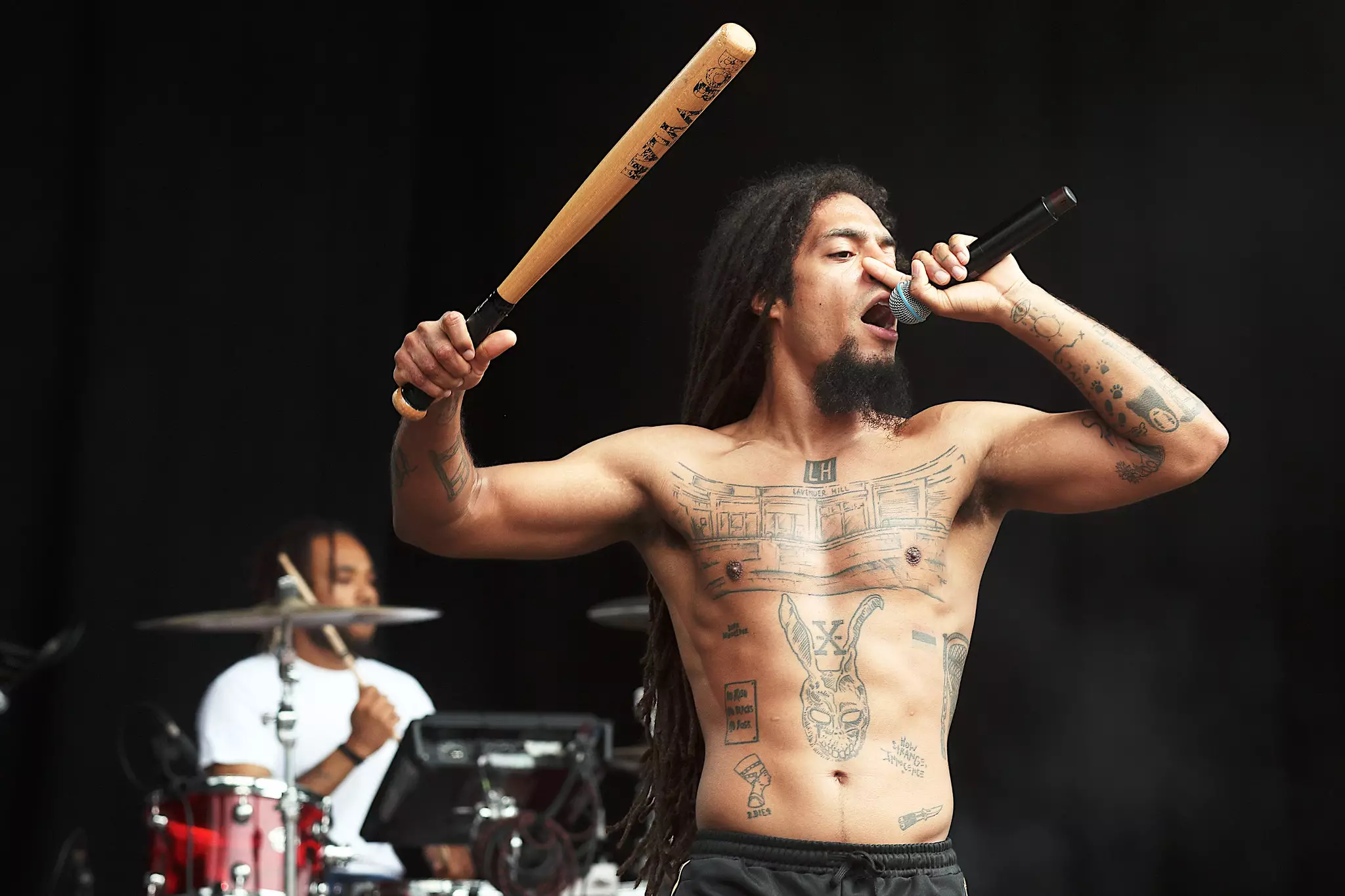Photo Credit: NMK Photography
Glastonbury 2025 wasn’t just a festival this year. It was a fault line. Amid the lights and celebration, a few acts used their moment to speak a raw and necessary truth. Kneecap and Bob Vylan didn’t flinch. They looked directly at the horrors unfolding in Gaza and called them what they are: genocide. They didn’t dress it up. They didn’t water it down. They told the truth. And they used the full force of their art to do it.
That word – genocide – makes people uncomfortable. Good. It should. We’ve all seen the images: refugee camps in ruins, entire families erased, journalists killed in the line of duty, aid convoys turned back, children buried beneath concrete. This isn’t defence. It’s not collateral. It’s slaughter. And it’s happening right now. That’s why Kneecap’s “Ceasefire Now” kick drum wasn’t a gimmick. It was a message. A demand. A scream from one stage that echoed around the world.
Art that cuts through the noise
Kneecap have never been ones to sugarcoat reality. Their work is soaked in the history of colonialism, resistance, and trauma. So when they say “ceasefire now,” it’s not performative. It comes from a place of lived experience – from understanding what it means to see your people brutalised and your story buried. Their message wasn’t vague. It wasn’t abstract. It was sharp, focused, and human.
Bob Vylan followed with fury sharpened into precision. “Genocide is not self-defence,” he declared. That line wasn’t controversial. It was clear. And necessary. Because when governments flatten cities and call it peacekeeping, someone needs to stand up and say, “No. That’s a lie.” He didn’t traffic in hate. He didn’t fall back on slogans. He said what needs to be said: this has to stop.
Both acts refused to be vague. They didn’t generalise. They didn’t dehumanise. They didn’t punch down. They pointed straight at a system of state violence and said, “Enough.”
There is no such thing as a neutral stage
Every stage carries weight. Every silence has meaning. What Kneecap and Bob Vylan did was fill that space with something that couldn’t be ignored. They reminded us that music has always been part of protest – from anti-apartheid songs to punk’s rejection of fascism to the resistance anthems of the civil rights era.
The power of Glastonbury isn’t just in its scale. It’s in its reach. One set, one sentence, one kick drum message can be streamed and shared and remembered for years. That’s why this matters. That’s why using that moment to speak against genocide matters.
They didn’t use that moment to divide. They used it to unite. To call for peace. To call for justice. To call for the killing to stop.
Clarity is not hate
Let’s say it plainly: being anti-genocide is not antisemitic. It is entirely possible – and absolutely necessary – to condemn mass violence against civilians without blaming or targeting any ethnicity, faith, or people. Kneecap and Bob Vylan walked that line with care and purpose. They didn’t smear anyone. They didn’t indulge in conspiracy. They didn’t promote hate. They promoted empathy.
They used their rage responsibly. They directed it at bombs, not beliefs. At governments, not communities. At destruction, not identity.
That matters. Because the accusation of hate is often used to silence people who are simply pointing out injustice. But there was no hate in these sets. There was grief. There was urgency. And there was courage.
This is what protest looks like
In a world where too many people look away, this kind of speech matters more than ever. When governments are supplying weapons instead of stopping the bloodshed, someone has to say, “This is wrong.” When the global media sanitises the deaths of children, someone has to refuse that comfort. When people are being bombed out of existence, someone has to shout on their behalf.
Music won’t end war. But it can force us to look at it. It can cut through the apathy. It can keep the memory of the dead alive. It can call people to action.
Kneecap and Bob Vylan did that. With their voices. With their bodies. With their presence. They didn’t need policy documents. They didn’t need a debate stage. They had microphones. They had conviction. And they used both.
The silence has already done enough damage
This isn’t a debate about left versus right. It’s not about ideology. It’s about life and death. It’s about whether we accept the mass killing of civilians as just another fact of modern warfare. It’s about whether we allow ourselves to become numb.
Kneecap and Bob Vylan refused that numbness. They said the words others are too scared to say. They stood in front of tens of thousands and shouted the truth.
“Ceasefire now.”
“Genocide is not self-defence.”
“Stop the killing.”
There is nothing controversial about those words. There is only humanity. And at Glastonbury, that humanity roared.
